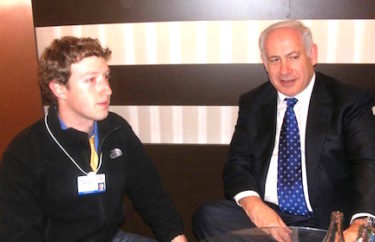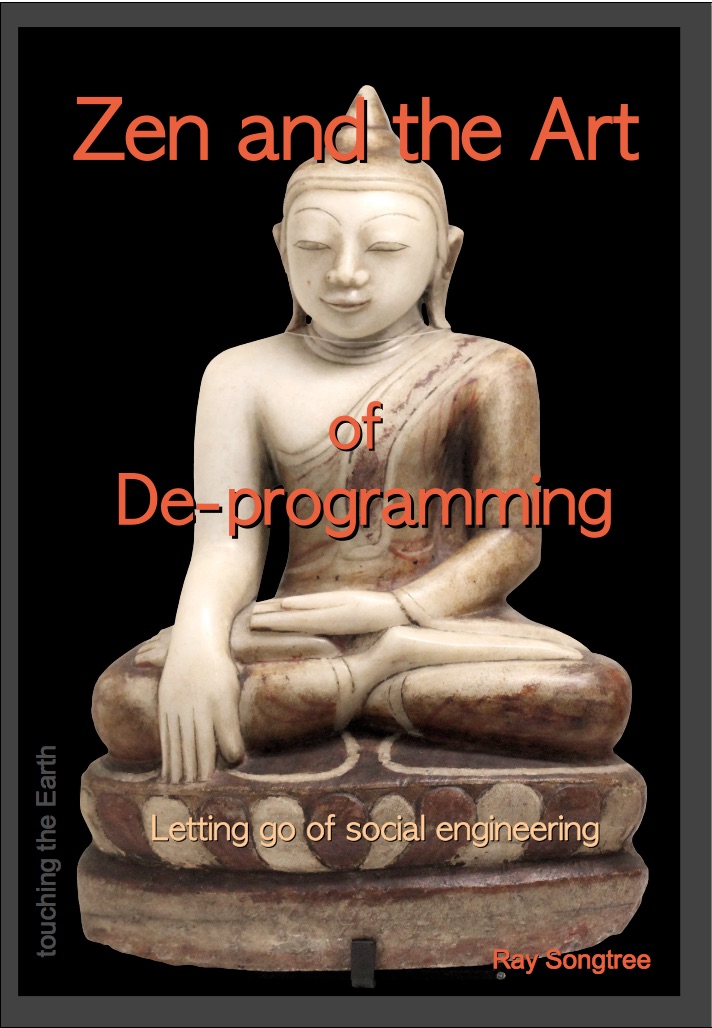September article on Israel, and below November article on China.
Bilderberger Mark Zuckerberg goes deeper into the pit of deception. Nice to see that one of Facebook’s satellites exploded recently.
Facebook And Israel Officially Announce Collaboration To Censor Social Media Content
By Whitney Webb of Activist Post
(Sept 16) Following Facebook’s censorship controversy over a world famous photograph of the Vietnam War, Facebook has agreed to “work together” with Israel’s government to censor content Israeli officials deem to be improper. Facebook officially announced the “cooperative” arrangement after a meeting took place between Israeli government ministers and top Facebook officials on September 11th. The Israeli government’s frenzied push to monitor and censor Facebook content it deems inappropriate follows the viral success of BDS, or Boycott, Divest, Sanctions, a global non-violent movement that works to expose Israeli human rights violations.
The success of BDS has struck a nerve with Israel, leading its government to pass legislation allowing it to spy on and deport foreign activists operating within Israel and Palestine. Israel has also threatened the lives of BDS supporters and has lobbied for legislative measures against BDS around the world. They are now seeking to curtail any further BDS success by directly controlling the content of Facebook users.
However, Facebook’s formal acknowledgement of its relationship with Israel’s government is only the latest step in an accord that has been in the works for months. In June of this year, Facebook’s Israel office hired Jordana Cutler as head of policy and communications. Cutler is a longtime adviser to Netanyahu and, before her recent hire at Facebook, was Chief of Staff at the Israeli embassy in Washington, DC. Facebook may have been intimidated into the arrangement by Gilad Erdan, Israeli Minister of Public Security, Strategic Affairs, and Information, who threatened to enact legislation, in Israel and abroad, that would place responsibility on Facebook for attacks “incited” by its social media content. Erdan has previously said that Facebook “has a responsibility to monitor is platform and remove content.”
In addition, as the Intercept reported in June, Israel actively reviews the content of Palestinian Facebook posts and has even arrested some Palestinians for posts on the social media site. They then forward the requests for censorship to Facebook, who accepts the requests 95% of the time.
In what is an obvious and troubling disparity, Facebook posts inciting violence against Palestinians are surprisingly common and Facebook rarely censors these posts. According to Pulitzer Prize-winning journalist, Glenn Greenwald, this disparity underscores “the severe dangers of having our public discourse overtaken, regulated, and controlled by a tiny number of unaccountable tech giants.”
With Facebook arguably functioning as the most dominant force in journalism, its control over the flow of information is significant. The fact that a private company with such enormous influence has partnered with a government to censor its opponents is an undeniable step towards social media fascism. Though social media was once heralded as a revolutionary opportunity to allow regular people to share information globally and to politically organize for grassroots change, allowing governments to censor their opposition threatens to transform it into something else entirely.
SAN FRANCISCO — Mark Zuckerberg, Facebook’s chief executive, has cultivated relationships with China’s leaders, including President Xi Jinping. He has paid multiple visits to the country to meet its top internet executives. He has made an effort to learn Mandarin.
Inside Facebook, the work to enter China runs far deeper.
The social network has quietly developed software to suppress posts from appearing in people’s news feeds in specific geographic areas, according to three current and former Facebook employees, who asked for anonymity because the tool is confidential. The feature was created to help Facebook get into China, a market where the social network has been blocked, these people said. Mr. Zuckerberg has supported and defended the effort, the people added.
Facebook has restricted content in other countries before, such as Pakistan, Russia and Turkey, in keeping with the typical practice of American internet companies that generally comply with government requests to block certain content after it is posted. Facebook blocked roughly 55,000 pieces of content in about 20 countries between July 2015 and December 2015, for example. But the new feature takes that a step further by preventing content from appearing in feeds in China in the first place.
Facebook does not intend to suppress the posts itself. Instead, it would offer the software to enable a third party — in this case, most likely a partner Chinese company — to monitor popular stories and topics that bubble up as users share them across the social network, the people said. Facebook’s partner would then have full control to decide whether those posts should show up in users’ feeds.
The current and former Facebook employees caution that the software is one of many ideas the company has discussed with respect to entering China and, like many experiments inside Facebook, it may never see the light of day. The feature, whose code is visible to engineers inside the company, has so far gone unused, and there is no indication that Facebook has offered it to the authorities in China.
Mike Isaac, a reporter for The New York Times, weighs in on Facebook’s new censorship software, which was created to help it get back into China.
SAN FRANCISCO — Mark Zuckerberg, Facebook’s chief executive, has cultivated relationships with China’s leaders, including President Xi Jinping. He has paid multiple visits to the country to meet its top internet executives. He has made an effort to learn Mandarin.
Inside Facebook, the work to enter China runs far deeper.
The social network has quietly developed software to suppress posts from appearing in people’s news feeds in specific geographic areas, according to three current and former Facebook employees, who asked for anonymity because the tool is confidential. The feature was created to help Facebook get into China, a market where the social network has been blocked, these people said. Mr. Zuckerberg has supported and defended the effort, the people added.
Facebook has restricted content in other countries before, such as Pakistan, Russia and Turkey, in keeping with the typical practice of American internet companies that generally comply with government requests to block certain content after it is posted. Facebook blocked roughly 55,000 pieces of content in about 20 countries between July 2015 and December 2015, for example. But the new feature takes that a step further by preventing content from appearing in feeds in China in the first place.
Facebook does not intend to suppress the posts itself. Instead, it would offer the software to enable a third party — in this case, most likely a partner Chinese company — to monitor popular stories and topics that bubble up as users share them across the social network, the people said. Facebook’s partner would then have full control to decide whether those posts should show up in users’ feeds.
The current and former Facebook employees caution that the software is one of many ideas the company has discussed with respect to entering China and, like many experiments inside Facebook, it may never see the light of day. The feature, whose code is visible to engineers inside the company, has so far gone unused, and there is no indication that Facebook has offered it to the authorities in China.
But the project illustrates the extent to which Facebook may be willing to compromise one of its core mission statements, “to make the world more open and connected,” to gain access to a market of 1.4 billion Chinese people. Even as Facebook faces pressure to continue growing — Mr. Zuckerberg has often asked where the company’s next billion users will come from — China has been cordoned off to the social network since 2009 because of the government’s strict rules around censorship of user content.

The suppression software has been contentious within Facebook, which is separately grappling with what should or should not be shown to its users after the American presidential election’s unexpected outcome spurred questions over fake news on the social network. Several employees who were working on the project have left Facebook after expressing misgivings about it, according to the current and former employees.
A Facebook spokeswoman said in a statement, “We have long said that we are interested in China, and are spending time understanding and learning more about the country.” She added that the company had made no decisions on its approach into China.
Facebook’s tricky position underscores the difficulties that many American internet companies have had gaining access to China. For years, companies like Google and Twitter have been blocked there for refusing to yield to the government’s demands around censorship. In 2010, Google said it was directing users of its search engine in China to its service in Hong Kong, because of censorship and intrusion from hackers. Other companies, like the professional social networking service LinkedIn, agreed to censor some content on their platforms in China.
The current climate for internet companies in China may not help Facebook. In August, the ride-hailing giant Uber gave up an expensive battle to crack the Chinese market, selling its Chinese business to an incumbent rival, Didi Chuxing. More broadly, China has streamlined and tightened its controls over the internet under President Xi, targeting influential social media celebrities and adding new reviews to popular online video sites.
Still, some officials responsible for China’s tech policy have been willing to entertain the idea of Facebook’s operating in the country. It would legitimize China’s strict style of internet governance, and if done according to official standards, would enable easy tracking of political opinions deemed problematic. Even so, resistance remains at the top levels of Chinese leadership.
Some analysts have said Facebook’s best option is to follow a model laid out by other internet companies and cooperate with a local company or investor. Finding a partner — and potentially allowing it to own a majority stake in Facebook’s China operation — would take the burden of censorship and surveillance off the Silicon Valley company. It would also let Facebook rely on a local company’s government connections and experience to deal with the difficult task of communicating with Beijing.
Facebook and Chinese officials have had intermittent talks in the last few years about the social network’s entering the market, according to employees who were involved in the discussions, though the two sides have been unable to reach a compromise.
Facebook currently sells advertising for some Chinese businesses from its Hong Kong office. Among its customers are state-media sites that act as the propaganda arm of the Chinese government, and that operate official accounts where they post articles. Chinese citizens who wish to gain access to Facebook must tunnel in using a technology known as a virtual private network, or VPN.
It’s unclear when the suppression tool originated, but the project picked up momentum in the last year, as engineers were plucked from other parts of Facebook to work on the effort, the current and former employees said. The project was led by Vaughan Smith, a vice president for mobile, corporate and business development at Facebook, they said. Like Mr. Zuckerberg, Mr. Smith speaks a smattering of Mandarin.
Unveiling a new censorship tool in China could lead to more demands to suppress content from other countries. The fake-news problem, which has hit countries across the globe, has already led some governments to use the issue as an excuse to target sites of political rivals, or shut down social media sites altogether.
Over the summer, several Facebook employees who were working on the suppression tool left the company, the current and former employees said. Internally, so many employees asked about the project and its ambitions on an internal forum that, in July, it became a topic at one of Facebook’s weekly Friday afternoon question-and-answer sessions.
Mr. Zuckerberg was at the event and answered a question from the audience about the tool. He told the gathering that Facebook’s China plans were nascent. But he also struck a pragmatic tone about the future, according to employees who attended the session.
“It’s better for Facebook to be a part of enabling conversation, even if it’s not yet the full conversation,” Mr. Zuckerberg said, according to employees.




